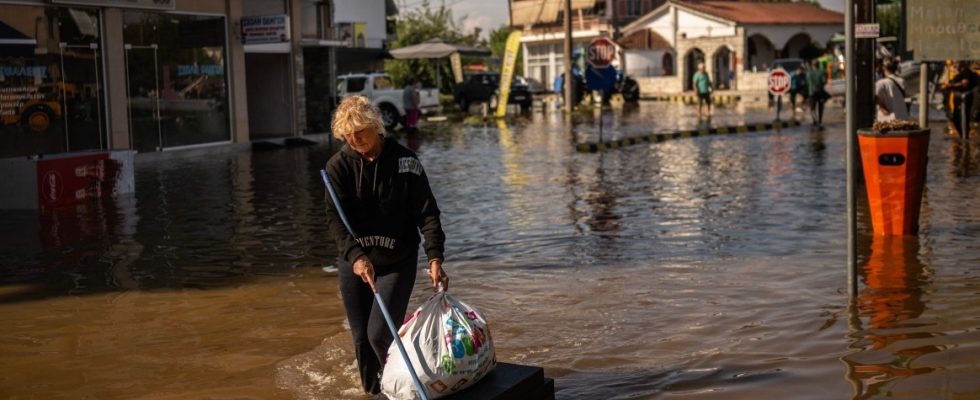A short tour of Europe is enough to anticipate the coming catastrophes. From the Ahr Valley, where the construction work is far from being completed and there is great fear of the next flood, to the Greek region of Thessaly, where the water is still standing in the fields, over to Spain, where permanent drought will soon result in deserts in some parts of the country become. The EU climate service Copernicus has just announced that people on earth experienced the warmest February since records began. For the first time, global warming was above 1.5 degrees over 12 months compared to the pre-industrial era.
Of all the continents, Europe is warming the fastest – but the EU and its member states are too ill-prepared for the impending consequences. This is the conclusion reached by the European Environment Agency (EEA) in its report on climate risks published on Monday. For the first time, the EU authority has taken a comprehensive look at the extent to which Europe is ready to meet the challenges of a warmer world. The document should be read as a warning, says EEA director Leena Ylä-Mononen: “This report is a wake-up call.” If Europe does not take accelerated action against climate change, “we could expect a temperature increase of up to seven degrees Celsius by the end of the century.”
Currently, temperatures in continental Europe were rising about twice as fast as the global average, the report said. The consequences could recently be seen as in a preview: more severe, longer droughts, life-threatening heat waves, more heavy rain events and floods, permanently changed precipitation patterns – and an overwhelmed disaster protection system. Scenes like last year in the plains of the Greek region of Thessaly, where people waited on rooftops to be rescued, would then no longer be blatant exceptions. Such events “endanger food and water security, energy security and financial stability as well as public health,” write the EU climate experts. “This in turn affects social cohesion and social stability.”
“Social provision is inadequate”
The EEA identifies 36 key climate risks, which it divides into five areas: ecosystems, food, health, infrastructure and economics and finance. Taken alone, each of these risks has the potential to cause “significant environmental degradation, economic damage, social distress and political turmoil.” Their combination leads to even more severe consequences. The experts consider eight of the identified risks to be “particularly urgent”.
These primarily include coastal and maritime ecosystems as well as forests as natural CO₂ storage. Higher water temperatures, ocean acidification and lower amounts of oxygen in the water threatened biodiversity and even led to mass extinctions of some species. Rising sea levels, storm surges and human interventions such as diking threatened coastal ecosystems. “All European seas are severely affected by these climate risks and anthropogenic pressures,” writes the EEA. The risks for ecosystems on land are no less great. Overall, the threats to ecosystems have a “high potential to spill over into other sectors and policy areas,” such as food security and water supply security.
The consequences of heat waves and droughts for crop cultivation and water supply are already being felt particularly strongly in southern Europe. The people living there are also the first to suffer from extreme heat, with potentially fatal consequences. Recommended countermeasures, summarizes the EEA, lie outside of classic environmental or health policy in the areas of urban planning, building standards and labor law.
On the one hand, the authors of the report praise the progress at the national level, where understanding of the risks of global warming has increased and policies are geared towards the identified dangers. “However, social precautions are inadequate,” they write – politicians act too slowly in relation to how quickly the risks are growing. The EEA also considers poor coordination between the EU and the member states to be problematic. Both Brussels and the capitals and other government levels below are responsible for most of the dangers.
The report appears at a time when the ambitious European climate policy of recent years is increasingly being thwarted and is facing a difficult time in the approaching European election campaign. The examples of this are increasing. The EU law on restoring nature was weakened in key areas, and the Commission completely withdrew a regulation to reduce the use of pesticides. Now the EU is trying to appease protesting farmers with concessions in the area of land use. All of these are things that the EEA considers urgently needed to prepare Europe for climate change.
Making policy based on the identified risks should be “one of the top priorities of the next legislative period,” says EEA boss Ylä-Mononen. There will be many in Brussels who ignore this wake-up call.

